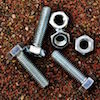Friday Flyer - January 5, 2018

Spotlight on the Syracuse University QuarkNet Center
Professors Steven Blusk and Matt Rudolph serve as mentors for this center that just completed its sixth year in QuarkNet. Last spring, Syracuse hosted an LCHb masterclass attended by 50 students from local high schools. During the summer of 2017, two students and one teacher (Justin Shute) were involved in summer research, working on projects relating to the Upstream Tracker that will be installed at LHCb in a future upgrade. Teachers met for a three-day workshop from August 21–23; participants collected cosmic ray data during the solar eclipse and were able to attend a talk on solar mechanics and the history of solar eclipses. During the final two days of the workshop, teachers worked on activities from the Data Portfolio, analyzed CMS data using the CMS e-Lab, and discussed classroom implementation.


News from QuarkNet Central
Here is the latest International Masterclass Circular. Contact Ken if you still need to sign up; note that orientations and Vidyo tests will begin later this month.
Applications for U.S. participants in the 2018 CERN High School Teachers program are now open! QuarkNet will select up to five U.S. teachers to spend three weeks at CERN with colleagues from Europe and around the world learning about particle physics and working together. Travel, lodging, food, a stipend, and organization are provided by the University of Michigan Research Experiences for Teachers program. Applications and recommendations are due Sunday, January 21, 2018. You may read more about the HST program here, but note that U.S. teachers are not to use the CERN application.

QuarkNet Nuts and Bolts
A reminder that both the QuarkNet and e-Lab websites will be down for scheduled maintenance tomorrow (Saturday, January 6, 2018). Both sites should be back up and running on Sunday, January 7.

Physics Experiment Roundup
Experiments at CERN's Large Hadron Collider highlight their results from 2017. See how large physics machines evolve in order to stay at the forefront of science and technology in this symmetry article.

Resources
Medical, aerospace, and emerging technologies are just a few examples of the many applications of CERN technologies in society. The Physics website highlights its favorite stories from 2017, and symmetry highlights physics books from 2017. This past year offered an opportunity for many of us to experience a total solar eclipse; symmetry features some QuarkNet teachers and students who studied cosmic rays during the total eclipse. And lastly, Fermilab's Don Lincoln talks about how the relationship between gravitational and inertial mass has significant consequences on our understanding of the universe in his recent YouTube video.

Just for Fun
Now that winter has its grip on much of the country, xkcd has a backyard snow tracking guide that you may find helpful. (Can you find evidence of the Higgs in your backyard?!) With the bitter cold comes the opportunity for fun demonstrations, as in this video of a soap bubble freezing.
QuarkNet Staff:
Mark Adams: adams@fnal.gov
Ken Cecire: kcecire@nd.edu
Shane Wood: swood5@nd.edu
